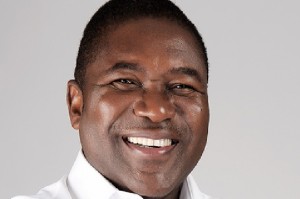The government should not have been surprised since Renamo leader Afonso Dhlakama had publicly stated on 23 August that he was breaking off the dialogue. Speaking at a rally in the central city of Quelimane, filmed by the independent television station STV, Dhlakama justified his decision to suspend the dialogue on the grounds that “the government does not want Renamo to form part of the governance of the countryâ€.
Four days later, in the district of Namacurra, Dhlakama categorically stated “There’s nothing! Forget it!â€. For good measure, he also flatly rejected the invitation from President Filipe Nyusi for a face-to-face meeting between the two leaders in Maputo.
The government must have known about Dhlakama’s statements, but its delegation turned up at the conference centre anyway. Pacheco told reporters the government had taken this decision, because it had received no formal communication from Renamo that the dialogue was at an end.
He accused Renamo of showing no respect for the Constitution or for the country’s other laws. “The path Renamo is taking surprises usâ€, said Pacheco. “From the attitude it is taking, Renamo is not interested in respecting the country’s institutions and personalitiesâ€.
“But we are a responsible governmentâ€, he added. “We remain hopeful that our compatriots who are members of Renamo may become aligned with the highest interests of Mozambique, for the progress of Mozambique and for the welfare of Mozambicansâ€.
The government, he added, remains committed to national unity, to the consolidation of Mozambican independence, and to the spirit and culture of peaceful coexistence.
Asked whether the Renamo boycott was just a pretext to launch a new cycle of instability, Pacheco said the government will do all in its power to prevent the eruption of a new wave of violence.
“Mozambique is not at warâ€, he stressed. “But should there be any situations which endanger human lives, which endanger public and private property, then the government will know how to defend people and how to defend property, as it has always does. The government is completely distanced from any attitude of declaring war in Mozambiqueâ€.
As for Dhlakama’s threats to create a Renamo army and police force, Pacheco stressed that, in Mozambique as in any other country, the only entity with the power to set up defence and security forces is the State.
“Political parties do not have this privilegeâ€, he said. Any party that set up its own forces “will be violating the basic principles of the rule of law, which the country is building, and is committed to continuing to buildâ€.
Pacheco said he believed thare are “three Renamos – the white collar Renamo is the dialogue sessions, the Renamo in parliament, which is treated with the full dignity of state, and then we have the Renamo which opts for violenceâ€.
“We know how to respect the apparently good part of Renamo in the dialogue and in parliamentâ€, he continued. “The bad part of Renamo is treated in terms of its own attitudes, when the situation demands such treatmentâ€.
Speaking to reporters on Monday evening, Renamo spokesperson Antonio Muchanga claimed that event which precipitated the boycott was what he described as the government’s enticement of Renamo officers to join the armed forces (FADM) and the police.
He was referring to the recruitment of two former Renamo officers in late July – Abilio Mucuepa was recruited into the police with the rank of assistant superintendent, and Manuel Lavimo was granted the rank of major in the FADM.
For Muchanga, this was enticement or even bribery. But the government has always made clear that it will welcome defectors from Renamo, and a secure position in the defence and security forces, with a guaranteed monthly salary, may look much more attractive than an uncertain future in one of Renamo’s bush camps.
Post published in: Africa News


